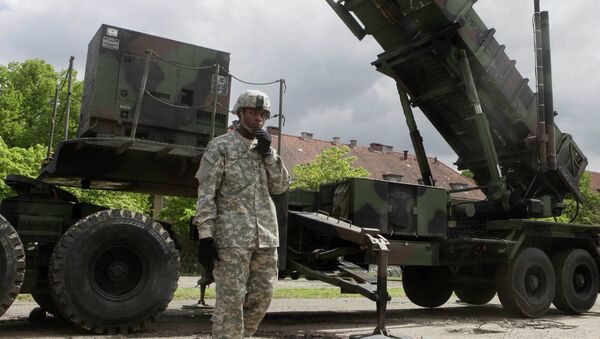WASHINGTON (Sputnik) — The Joint Comprehensive Plan of Action (JCPOA) that was negotiated between Iran and the P5+1 group of countries to contain Tehran’s nuclear program could cause NATO to scale back its missile defense plans in Europe, Arms Control Association Senior Fellow Greg Thielmann told Sputnik.
“I believe that the JCPOA [with Iran] can also have an impact on slowing and shrinking NATO's plans for producing and deploying more capable missile defenses,” Thielmann told Sputnik on Tuesday.
It would be logical, Thielmann argued, for NATO to suspend deployment of systems that are designed to defend Europe against intermediate-range missile strikes from the Middle East, because the nuclear agreement will prevent Iran from developing those types of weapons.
Thielmann asserted the Iran deal will not encourage other countries in the region or around the world to pursue nuclear weapons.
“After all this effort and cost, Iran will have neither a clear path to nuclear weapons, nor a cost-competitive means for fuelling its own reactors,” Thielmann said. “[T]he huge economic and political sacrifices Iran has made to develop a complete nuclear fuel cycle offer instead a stark warning.”
Thielmann applauded Russia’s efforts at helping Iran establish a secure fuel supply while preventing it from constructing its own uranium centrifuges.
“Russia has demonstrated that it can be a supplier of nuclear technology without exacerbating proliferation concerns,” Thielmann claimed.
Earlier on Tuesday, Iran and the P5+1 group of countries, comprising of the United States, Russia, China, France and the United Kingdom plus Germany, announced a final comprehensive agreement on the parameters of Tehran's nuclear program in exchange for sanctions' relief.


